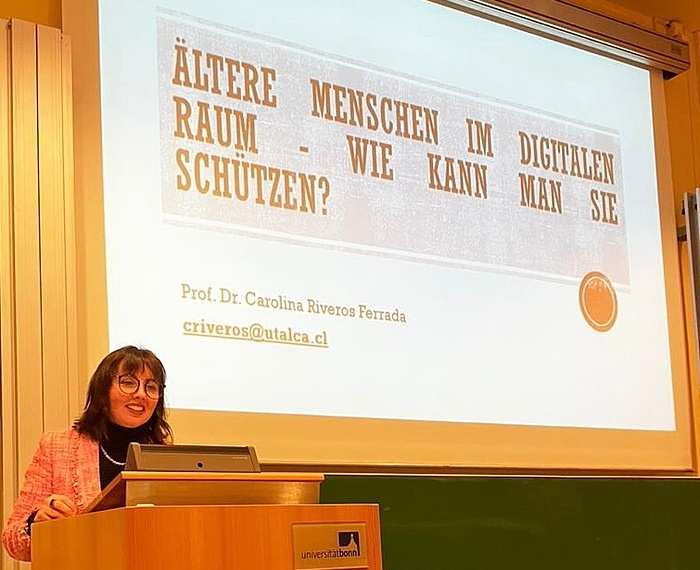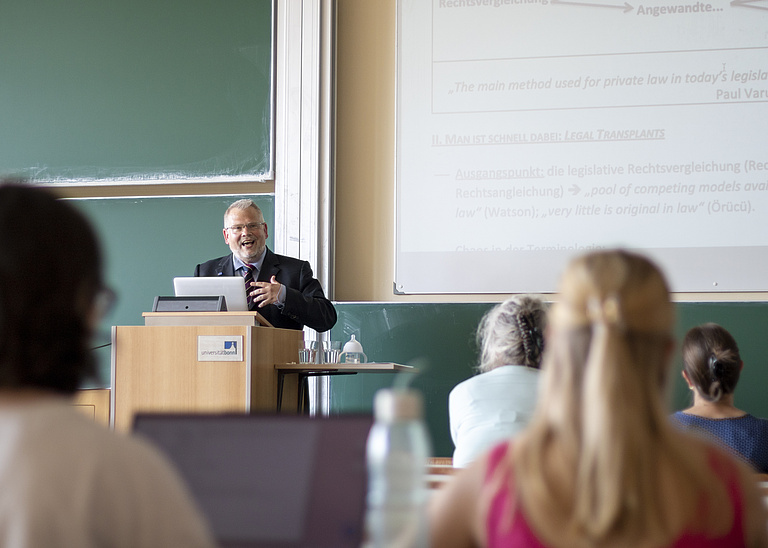As part of the department's internationalization strategy, one of the key objectives is to further advance the internationalization of science.
For this purpose, the lecture series § JurLecture has been developed by the International Affairs/German as a Foreign Language team. What sets this lecture series apart is that all lectures are given by international guest researchers themselves. The aim is to make the expertise of these guest researchers accessible to other faculty members and the interested public, to provide a foundation for broader discourse.
Moreover, § JurLecture is also intended to provide a platform for the presenting guest researchers to extend their visibility beyond their hosting department and engage in further discussion.
Opening event of the guest lecture series § JurLecture on January 23, 2023
By Professor Dr. Carolina Riveros Ferrada from Chile
Prof. Dr. Carolina Riveros Ferrada conducts research on the protection of human rights of older persons and is a member of the "Advisory Committee of the National Authority for Older Adults of the Ministry of Social Development in Chile", which makes her an expert on the lecture topic "Elderly People in the Digital Space - How to Protect Them?"
During her presentation, Professor Riveros examined the legal situation concerning the protection of older people in the virtual world, focusing particularly on the "Inter-American Convention on Protecting the Human Rights of Older Persons" from June 15, 2015, and the United Nations' "Decade of Healthy Ageing 2020-2030" strategy.
The second guest lecture in the lecture series § JurLecture on June 12, 2023
By Professor Dr. Ádám Fuglinzsky, ELTE University Budapest
Herr Fuglinszky, Full Professor of Civil Law at Eötvös Loránd University (ELTE) Budapest and visiting scholar at the chair of Professor Gössl, delivered a lecture on the topic "Legal Transplants in the Focus of Comparative Law - Curse or Blessing?".
He began by explaining the starting point of legal transplants, addressing terminological ambiguities and inaccuracies, as well as discussing the fundamental possibility of legal transplants. Subsequently, Mr. Fuglinszky elaborated on the six essential theses and malpractice of legal transplants. In doing so, he supported his explanations with illustrative examples from the diverse legal history of Central and Eastern Europe.
If you have any suggestions, questions, criticism, or commendation regarding the § JurLecture lecture series, please feel free to contact us via mail.
Your International affairs/ German as foreign language team